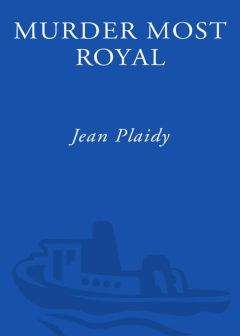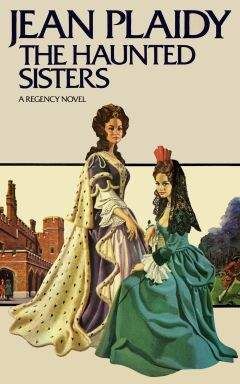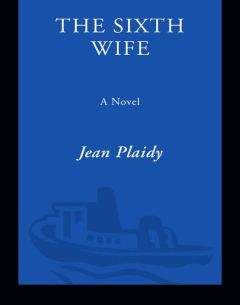“I feel this matter of the Queen’s marriage is of the utmost importance to our country, and that while she is playing with the idea of making her subject Dudley her husband, she is obsessed by her vanity; and the way in which we could appeal to that would be to suggest to her the greatest match the world can offer.”
Philip laid down the documents and considered this. Himself once more the husband of a Queen of that bleak land! He shrank from the idea.
He thought of her—sly, yet demure—dropping to her knees before him, yet raising her eyes as though to say: I salute you because the world recognizes you as its greatest monarch; but to me you are just a man, and one day there will be a greater monarch—and that a woman. One day there will be a greater country than Spain, and that will be England; for I shall be Queen of England, and I will have none but the best.
She was arrogant and insolent, yet so clever that it was impossible to protest against that insolent arrogance.
He thought of her pleading with her sister, when he had seen her from behind the curtains. Then she had been afraid, and yet what pride there was in her, and how different she had seemed from poor, sickly Mary, doomed to defeat, frustration, and failure!
And to marry her! That was what Feria was suggesting. Marry that coquette, that virago, that conceited, foolish, shrewd woman!
She was not repulsive to him, but why should he concern himself with her physical attractions? It was not for him to marry for such reasons. He must think only of his religion and his country.
He looked again at the crucifix on the wall. To bring England back to Rome was worth any price that might be asked of him. And now this Queen was about to break away from Rome; he was fully aware of that. If she did so, Henri of France would have little difficulty in getting the Pope to excommunicate her; then the Pope would be ready to support the claim of Mary Queen of Scots to the English throne.
There must not be an English-French alliance.
He rose from his table and fell to his knees before the crucifix. There had come to him suddenly a vision of married life with the Queen of England. It would be an exciting life, he doubted not; quite different from that which he had shared with her half-sister. He thought of her red hair and blue eyes which veiled her secret thoughts. Desire? A little perhaps. She appealed to something in him. But he knew he could never subdue her. He knew that life with her would be one long battle. He was not a warrior; he was a man who hated war. Moreover, he felt that she, with her wiles and sly cunning, would get the better of him.
Marry Elizabeth? “No!” he murmured.
Yet such a marriage would be good for his country; it would baffle the French. He must pray; he must ask for guidance. Was it God’s will that he should marry Elizabeth of England?
Quite suddenly he knew that it was so. She was wavering toward heresy, and only marriage with the Most Catholic King might save her. He could make her abandonment of heresy a condition of the marriage; in fact he must do this.
Then the Inquisition should be set up in England. Was it not Philip’s task in life to save the world for Catholicism?
He wrote to Feria:
“I highly approve the course you have adopted in persuading the Queen not to marry a subject. As regards myself, if she were to broach the matter to you, you should treat it in such a way as neither to accept nor reject the suggestion entirely. Many obstacles present themselves. I could not be much in England, as my other dominions claim my attention. The Queen is rumored to be unsound in religion and it would not look well for me to marry her if she were not a Catholic. Such a marriage would, in view of the claims of Mary of Scotland, mean perpetual trouble with France. So there is much against the marriage; but I cannot lose sight of the fact that such a match would be of great moment to Christendom, and it is my great wish that England should not lapse into former errors.
“I have decided, therefore, to put aside all other considerations and render this service to God by offering to marry the Queen of England. There must be conditions, and the first is that the Queen must profess to be a staunch Catholic. Dispensation from the Pope will be necessary, but if she is a good Catholic that will present no great difficulty.”
When he had finished he read through the letter. To bring her and her country back to the true faith would be a great achievement and give him much credit in the eyes of God.
But was that the real reason why he wished to marry Elizabeth?
There were two others. She interested him. Her perpetual assurance of her own desirability had apparently made him feel that there must be some truth in it. Her past appeared to be far from unsullied; there had been adventures. She was young; she was all that Mary had not been.
And the last reason? As King of Spain, he must not lose the friendship of the English. Henri of France was awaiting his opportunities. If Mary Stuart ever reached the throne of England, then France, with England her close ally, would threaten to become the greatest world power.
There were so many reasons. Which was the most important of them all? Philip was not sure.
But the Queen of England was not overcome with joy by the proposal of the King of Spain. She flirted with Dudley and her Spanish suitor’s ambassador; she was absurdly coquettish, declaring that since Feria was her suitor by proxy he must not have lodgings under the same roof, for that would be most improper (yet this, Feria wrote, was she who, rumor had it, had borne Seymour a child!). First she favored one, then another; she accepted the rich present of jewels which Philip had instructed Feria to give her—jewels which he had previously given to Mary—but she had accepted them with a speculative light in her eyes which had meant: What does he want for this? Philip would never give something for nothing!
At times she snubbed Feria; at others she petted him. She could not see him; she was too busy; she was not well. Then he must sit beside her; he was her very dear friend and she would have him know that he was always welcome.
Feria wrote to his master in exasperation: “She is the daughter of the Devil, surrounded by ministers who are heretics and scoundrels.”
The “courtship” dragged on. Elizabeth was favoring one suitor after another, behaving as though the humblest of them was as interesting to her as the most powerful.
Such a state of affairs could not continue. Spain could not be slighted forever.
Philip suddenly decided on a change of policy. He was no longer going to ask for Elizabeth’s hand; and it seemed to him that God was guiding him, for just at that moment when the conduct of the English Queen was exasperating him beyond endurance, the French Ambassador brought dispatches from the King of France in which Henri declared that he was becoming alarmed by the growth of heresy in his country; and he felt it behooved the great Catholic powers to stand together against it throughout the world. It was irreligious for Catholic to fight Catholic while the enemy of their faith was growing to alarming power. Should not the Kings of France and Spain stand together, forget their differences, and isolate England, which, in spite of the prevarication of its Queen—or perhaps because of this—was daily growing more heretic?
Let the marriage between Carlos and Henri’s daughter Elisabeth take place at once, and so show the world that the two Catholic Kings were united against the heretic.
Surely this was the answer, thought Philip. It should be done.
Carlos was quietly happy.
At last she was coming to him, this beautiful girl. He had worked hard with the French language; he could speak many words now. He could say: “I shall call you Isabella, because that is a beautiful name in this country. It is Spanish, and Elisabeth is French. You are Spanish now, dear Isabella.”
He talked to her when he was alone; and he fancied the picture in the locket smiled at him.
He would show her the countryside; he would tell her about his ambitions, how he had always longed to be a great soldier, and that perhaps now that he was so much better, he could be.
“Isabella … Isabella …” he whispered. “I am so glad you are here. There is no one who loves me. Now there will be. There will be you, Isabella.”
Sometimes he pictured darker scenes when he was angry—not with Isabella though; he would never be angry with her. But he fancied that one of his black moods came upon him and he struck his servant until Isabella came to him and begged him to show mercy to the man. And for Isabella’s sake he would pardon the servant. She would be delighted. “Thank you, Carlos,” she would say. “How happy you make me!”
Isabella was gentle. He could see that by her picture. She would be sorry for helpless little animals. She would beg him not to roast hares alive as he liked to do; she would beg him not to cut their throats and let them bleed slowly to death.
“I know I am silly, Carlos,” she would say, “but it frightens me.”
Then Carlos would answer: “I will not do it, Isabella, because I wish to do what you want always … always …”
Then they would laugh together and he would tell her of the black moods. She would kiss him and say: “I will charm them away, dear Carlos.”
“Oh, Isabella … Isabella … at last you are coming! Even my father cannot keep you from me now.”
In the Brussels Palace Philip thought continually of this marriage, and how could he possibly think of the marriage without sorrowfully pondering over the prospective bridegroom?
He shuddered, remembering Carlos in a hundred ugly moods.
“Holy Mother,” he groaned, “why was I burdened with such a son?”
What could Carlos do for his father? What could he do for Spain? The reports from his tutors were alarming; there was not one of them who, having been given a high post in the household of the Prince of the Asturias, did not hint that he would be delighted to dispense with it.
Philip must face the truth. Carlos might not yet be as mad as his great-grandmother Juana, but he was not entirely sane. What trouble Juana had caused! Philip recalled the stinking apartment and the wild-eyed woman. He remembered how she had kept her daughter Katharine in seclusion in the Alcázar of Tordesillas. He remembered how she had screamed from her window, ordering the guards to kill one another.
Carlos was unfit for marriage.
Philip himself must have another son; if he did so, this marriage of Carlos with Elisabeth of Valois would be unnecessary. The important matter at issue was alliance with France, and Philip was the one who needed a wife. Why not continue with the French marriage, but with a different bridegroom!
He reached for the marriage contract. It was so simple. All he need do was substitute the name of Don Philip, King of Spain, for that of Don Carlos, Prince of the Asturias.
And what would the King and Queen of France say to such an exchange of bridegrooms? He could rely on their attitude. Instead of marrying their daughter to a weakling boy who had no power they would be offered alliance with the most powerful monarch in the world. What would any ambitious father and mother say to such a project?
And what would Elisabeth herself say to such a dazzling prospect?
But did it matter what such a child would say? She would of course obey first her parents and then her husband.
The more Philip thought of the project, the more he liked it.
It was left to Juana to tell Carlos.
She came to him, her face, as usual, half-hidden; and there was a terrible fear in her heart. She knew why he had improved so much during the last months; she knew of the picture in the locket, which was his perpetual solace.
She dreaded telling him, yet she knew he must not hear the bad news from any other. Who knew what wildness would take possession of him? He would be capable of a murderous assault on anyone who told him what had been decided.
She came to him while he was studying a book written in French.
“Carlos!” she cried. “Little One!”
He looked at her haughtily. He was not Little One now. He was grown up. He was about to be a husband.
“Carlos, there is sad news, dear one. It is hard to tell.”
“My father is coming home,” he said scowling.
“Yes, yes. I doubt not that he will be home. Carlos, he is to marry.”
“Ha! Then we shall both be bridegrooms. Who is it to be? The Queen of England? I am sorry for her … though they say she is a fury herself. Ha … ha …”
“Do not laugh like that, Carlos. It is not to be the Queen of England.”
“Juana … Juana … why do you look at me like that? Why do you look so sad and frightened?”
“Because, my darling, I have such bad news for you.”
“For me? Oh! He is going to stop my marriage. He hates me. He hates me to be happy. He will keep Isabella from me. But I will run away. I will go to her. I will go to the King, her father, and tell him how they treat me here.”
“No, Carlos, no. Your father has decided that … you are too young to marry, and …”
Carlos let out a howl which was like that of a wild animal. He ran to Juana and began beating her with his fists.
“Stop … stop!” she cried. “You have not heard, Carlos. Do you want me to tell you? I thought it better that you should hear from me.”
He glared at her, and all his misery showed in his face.
“Isabella …” he muttered. “Isabella …”
“Yes. But I cannot tell you till you lie down.”
His lips were twitching and there was foam at his mouth. But he allowed her to lead him to a couch, and there he lay while she knelt and took his hand. It was clammy and the pulse was erratic.
“Carlos, my Little One. I would give my life to spare you this. Your father … he is going to marry Isabella himself.”
He did not speak. He just lay with eyes wide open; she thought he had not understood, and she began to pray: “Holy Virgin, help me to comfort him. Holy Mother, help him, because he needs your help so much …”
Now he was speaking. The words came through his clenched teeth; but he did not pray. Juana felt her limbs go stiff with horror as she heard his words.
“Hate … hate … hate … I will kill him. This has decided it. I will kill him … with mine own hands …”
Then the tears rolled down his cheeks, and suddenly he turned on to his face and began to bite the cushions on the couch; strange noises came from his lips; his clenched fists were shaking; he twisted and turned, and as he rolled over she saw his face. There was blood on his chin, and his eyes were staring inhumanly.
He did not see her. He saw nothing but the pictures conjured up in his distorted mind. He had forgotten his love for Isabella in his hatred for his father.
Juana ran from the room. He was in one of those terrible fits which had afflicted Juana’s own small brothers. And as she ran, calling for attendants, she could not shut out of her mind those words of the young Prince concerning his father:





